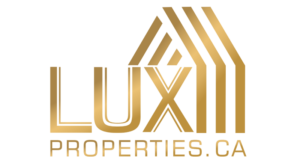Buying Houses in Danforth Village Toronto
Buying Houses in Danforth Village Toronto is a great investment. This neighborhood offers a mix of charm and convenience. Homes here suit different lifestyles. Danforth Village has a strong community. Parks, schools, and local shops make it a desirable place. The area is ideal for families and professionals. Real estate prices vary. House styles range from classic to modern. Buyers can find detached homes, townhouses, and semi-detached options. Public transportation is excellent. The subway and bus routes connect residents to downtown Toronto. Commuting is easy and convenient.
Buying Houses in Danforth Village Toronto means enjoying vibrant culture. Restaurants, cafes, and markets add to the neighborhood’s appeal. Greek and multicultural influences are strong. The real estate market is competitive. Demand for homes remains high. Investing here can provide great long-term value. Schools and community centers are nearby. Families benefit from quality education and recreational activities.
Home prices depend on size and location. Some properties need renovation, while others are move-in ready. Safety and walkability are key advantages. Many daily needs are within walking distance. Buying Houses in Danforth Village Toronto offers urban living with a suburban feel. Explore available listings and find your perfect home today!
Buying Houses in Danforth Village Toronto : Available Types And Price
Danforth Village is a vibrant and growing neighborhood in Toronto. It attracts many homebuyers due to its accessibility, amenities, and community feel. The area offers various types of homes, including detached houses, semi-detached homes, townhouses, and condominiums. Each housing option has unique features, benefits, and price ranges. Buyers must consider factors such as budget, lifestyle, and long-term investment potential before making a purchase. Understanding the available types and costs helps buyers make informed decisions. The real estate market in Danforth Village is competitive, and property values have been rising steadily. Choosing the right home requires careful research and planning.
Detached Houses in Danforth Village
Detached houses are among the most sought-after properties in Danforth Village. These homes offer the most space and privacy, making them ideal for families. A detached house is a standalone property with its own yard, driveway, and often a garage. Many detached homes in this neighborhood have two or more stories, multiple bedrooms, and spacious living areas. The architectural styles vary, with some older homes featuring classic Toronto brickwork and newer ones offering modern designs.
The price of detached houses in Danforth Village depends on several factors, including size, condition, and location. On average, prices start from $1.2 million for a smaller, older home. Well-maintained or newly renovated detached houses can range from $1.5 million to over $2 million. Larger properties with updated interiors, finished basements, and premium locations near parks or transit hubs tend to be more expensive. The demand for detached homes remains high, making them a solid investment for long-term property value growth. However, buyers should consider maintenance costs, property taxes, and renovation expenses when purchasing a detached home.
Semi-Detached Houses in Danforth Village
Semi-detached houses are another popular option in Danforth Village. These homes share one wall with a neighboring property but still offer ample space and privacy. They are a great choice for families who want a balance between affordability and comfort. Many semi-detached houses in the area feature two or three bedrooms, private backyards, and basements that can be used for extra living space or rental income.
The price of semi-detached houses in Danforth Village varies based on size, condition, and location. On average, prices range from $900,000 to $1.5 million. Older semi-detached homes that require renovation tend to be on the lower end of this range. Newly renovated homes with modern kitchens, updated bathrooms, and energy-efficient features can cost significantly more. Buyers looking for semi-detached homes should consider factors like potential renovation costs, property taxes, and future resale value. These homes are ideal for buyers who want a family-friendly space without the higher costs of a fully detached home.
Townhouses in Danforth Village
Townhouses are an excellent choice for buyers seeking affordability and modern living. These multi-story homes often feature open-concept layouts, efficient use of space, and private outdoor areas such as balconies or small yards. Some townhouses come with shared community amenities, including playgrounds, green spaces, or even fitness centers. They are especially attractive to young professionals, small families, and first-time homebuyers who want a low-maintenance lifestyle.
The price of townhouses in Danforth Village typically falls between $800,000 and $1.3 million. Older townhouses or units in less desirable locations may be available at lower prices. However, newer townhouses with upgraded finishes, energy-efficient designs, and proximity to transit or schools can cost significantly more. Some townhouses have maintenance fees, which cover snow removal, landscaping, and shared amenities. Buyers should review these fees before making a purchase. Townhouses are a good investment due to their affordability compared to detached homes while still offering ample living space.
Condominiums in Danforth Village
Condos are a practical option for buyers who prioritize convenience and affordability. These units are located in high-rise or mid-rise buildings and often come with amenities such as security, fitness centers, rooftop terraces, and underground parking. Condos in Danforth Village are popular among first-time buyers, young professionals, and investors looking for rental properties.
Prices for condos in Danforth Village generally range from $500,000 to $1 million. Smaller units, such as one-bedroom condos, tend to be on the lower end of the price range. Larger condos with two or more bedrooms, modern finishes, and premium locations near subway stations or shopping areas can be more expensive. Additionally, condo owners must pay monthly maintenance fees, which cover building upkeep, security, and amenities. While these fees add to the overall cost, they provide convenience and reduce the burden of maintenance. Condos are an excellent choice for buyers who want an affordable home in a desirable neighborhood without the responsibilities of maintaining a house.
Factors Affecting House Prices in Danforth Village
Several key factors influence house prices in Danforth Village. One of the most important is location. Homes closer to subway stations, major roads, parks, and shopping districts tend to have higher prices. Properties in quieter residential streets may be more affordable but still provide good investment potential.
Another crucial factor is the size and condition of the home. Larger homes with multiple bedrooms, finished basements, and upgraded kitchens command higher prices. Renovated homes with modern features, such as energy-efficient windows and smart home technology, can also be more expensive. The age of the home plays a role, as older properties may require costly repairs and updates.
Market demand and interest rates also impact housing prices. When demand is high and mortgage rates are low, prices tend to rise. Conversely, economic downturns or higher interest rates can slow the market and create more buying opportunities. Buyers should consider these factors and work with real estate agents to find the best deals.
Mortgage and Financing Options
Most homebuyers in Danforth Village require a mortgage to finance their purchase. Banks and lenders offer various mortgage products, each with different interest rates and repayment terms. Buyers with strong credit scores and stable incomes can secure lower interest rates, reducing their overall cost of homeownership.
A key factor in obtaining a mortgage is the down payment. In Canada, buyers must pay at least 5% of the home’s purchase price upfront. For homes priced over $1 million, the minimum down payment increases. A higher down payment reduces monthly mortgage payments and overall interest costs. Some first-time buyers qualify for government assistance programs, such as the First-Time Home Buyer Incentive, which helps reduce upfront costs. Understanding mortgage options ensures buyers make the best financial decision.
Hidden Costs of Buying a House
Buying a home involves more than just the purchase price. Several hidden costs can add up, making homeownership more expensive than expected. One major expense is the land transfer tax, which applies when purchasing property in Toronto. Buyers should factor this into their budget, as it can cost thousands of dollars.
Other hidden costs include legal fees, home inspections, and moving expenses. A professional home inspection helps identify potential issues, such as structural problems or outdated wiring. While this adds to upfront costs, it prevents costly surprises later. Additionally, homeowners must budget for property taxes, insurance, and maintenance expenses. Unexpected repairs, such as a roof replacement or plumbing issues, can be costly. Planning for these expenses ensures buyers are financially prepared for homeownership.
Future Market Trends in Danforth Village
The real estate market in Danforth Village continues to evolve. Over the years, property values have increased due to growing demand and ongoing developments. Infrastructure projects, such as transit improvements and new commercial areas, contribute to rising home prices.
As more people seek affordable alternatives to downtown Toronto, Danforth Village remains a desirable location. Buyers investing in this neighborhood can expect steady property appreciation. However, economic factors, such as interest rates and housing supply, can influence future trends. Monitoring the market helps buyers make informed investment decisions.
Buying houses in Danforth Village Toronto: available types and price analysis provide valuable insights for homebuyers. The neighborhood offers a range of housing options, from detached homes to condominiums. Each type has advantages and price considerations. Understanding factors like location, financing, and hidden costs helps buyers navigate the market successfully. With careful planning, purchasing a home in Danforth Village can be a rewarding and valuable investment.
The Legal Process of Buying Houses in Danforth Village Toronto
The legal process of buying houses in Danforth Village Toronto involves multiple steps. Buyers must follow legal requirements to complete a successful transaction. The process includes making an offer, securing financing, conducting inspections, and finalizing the sale. Each step has legal implications that buyers must understand. A real estate lawyer ensures all legal aspects are properly handled. Understanding the process helps buyers avoid potential legal issues.
Finding the Right Property
Choosing a property is the first step in buying a home. Buyers must research available properties in Danforth Village. They should consider location, size, price, and future investment potential. A real estate agent helps buyers find suitable options. Agents provide information about market trends and pricing. They also assist with negotiations and paperwork. Buyers must ensure the property meets their needs and budget. Researching property values helps buyers make informed decisions.
Making an Offer
Once a buyer finds a suitable property, they must make an offer. The offer includes the price, conditions, and closing date. A real estate lawyer reviews the offer before submission. Sellers may accept, reject, or counter the offer. If a counteroffer is made, negotiations continue until both parties agree. Offers often include conditions such as financing approval and home inspection. Removing conditions too soon can create legal risks. A lawyer ensures the offer protects the buyer’s interests.
Securing Financing
Financing is a crucial part of the home-buying process. Buyers must secure a mortgage from a bank or lender. Lenders assess the buyer’s credit score, income, and debt before approval. Mortgage pre-approval helps buyers understand their borrowing limits. A higher down payment reduces monthly mortgage payments. Buyers must compare different mortgage options and interest rates. Some lenders require mortgage insurance for high-ratio loans. Legal documents must be signed to finalize financing agreements.
Conducting a Home Inspection
A home inspection helps identify potential issues with the property. Inspectors check for structural problems, plumbing issues, and electrical faults. Buyers should not skip this step, even for newer homes. Inspection results impact negotiations and final pricing. If major problems are found, buyers can request repairs or a price reduction. Some contracts include a home inspection condition for buyer protection. Legal disputes may arise if undisclosed issues are discovered later. A lawyer ensures inspection conditions are properly documented.
Reviewing the Purchase Agreement
The purchase agreement is a legally binding document. It outlines the terms of the sale, including price and conditions. A real estate lawyer reviews the agreement to ensure accuracy. The agreement should protect both the buyer and seller. Legal errors in the agreement can cause disputes later. Buyers must read all terms carefully before signing. The agreement includes the closing date and deposit requirements. Lawyers ensure all legal obligations are met before finalizing the contract.
Title Search and Legal Verification
A title search confirms property ownership and any legal claims. Lawyers check for liens, unpaid taxes, and other encumbrances. Buyers must ensure the title is clear before purchasing. A clean title prevents future legal disputes. If issues are found, the seller must resolve them before closing. Title insurance protects buyers from hidden legal claims. Legal verification ensures the property meets zoning and building regulations. Lawyers handle all title-related legal matters.
Paying the Deposit
A deposit secures the home purchase and shows commitment. The amount varies based on property value and market conditions. Deposits are usually held in a trust account until closing. If the buyer backs out without legal reasons, the deposit may be forfeited. A lawyer ensures deposit terms are fair and legally binding. Deposit payments must be documented in the purchase agreement. Buyers should confirm payment methods with their lawyer.
Understanding Closing Costs
Closing costs include legal fees, land transfer tax, and other expenses. Buyers must budget for these additional costs before finalizing the purchase. Legal fees cover document preparation and title registration. The land transfer tax is a government fee based on property value. Other costs include home insurance, property tax adjustments, and moving expenses. Buyers should get a detailed breakdown of closing costs from their lawyer. Unexpected costs can impact the overall budget.
Finalizing the Mortgage
Before closing, buyers must finalize their mortgage agreement. Lenders require proof of home insurance and legal verification. A lawyer reviews mortgage documents to ensure accuracy. Buyers must understand interest rates, repayment terms, and penalties. Mortgage registration is a legal requirement before closing. Failure to meet mortgage terms can result in legal consequences. Buyers should consult their lawyer before signing mortgage agreements. Understanding mortgage obligations prevents financial issues.
Signing Legal Documents
The final step before closing is signing all legal documents. Buyers must sign the deed, mortgage papers, and closing statement. Lawyers explain the legal implications of each document. Signing mistakes can delay the closing process. Buyers should review all documents carefully before signing. Electronic signatures may be allowed in some cases. Lawyers ensure all documents meet legal requirements. Proper documentation prevents legal disputes.
Transferring Ownership
On the closing date, ownership is officially transferred to the buyer. The lawyer registers the new title with the land registry office. Buyers receive the keys once funds are transferred. The seller must ensure all conditions are met before transfer. Any legal issues must be resolved before closing. A final walkthrough ensures the property is in the agreed condition. Lawyers confirm the successful transfer of ownership. Buyers should keep all closing documents for future reference.
Post-Purchase Legal Responsibilities
After buying a home, buyers have legal responsibilities. Property taxes must be paid on time. Home insurance must remain active to protect against damages. If the home is rented, landlord-tenant laws must be followed. Buyers should update legal documents, including wills and insurance policies. Homeowners’ associations may have additional rules and fees. Legal compliance ensures smooth homeownership. Buyers should consult a lawyer for any legal concerns.
Handling Legal Disputes
Legal disputes can arise after purchasing a home. Issues may include undisclosed property defects, boundary disputes, or financing problems. Buyers should document all agreements and communications. A lawyer helps resolve disputes through negotiation or legal action. Mediation or court proceedings may be required in serious cases. Buyers should act quickly if legal problems arise. Understanding legal rights helps prevent financial losses. Proper legal guidance ensures disputes are handled effectively.
The legal process of buying houses in Danforth Village Toronto involves multiple steps. Buyers must follow legal requirements to ensure a successful transaction. Working with a real estate lawyer helps navigate complex legal matters. Understanding each step prevents legal issues and financial risks. A well-planned purchase ensures a smooth transition into homeownership. Buyers who follow legal procedures protect their investment and future property rights.


